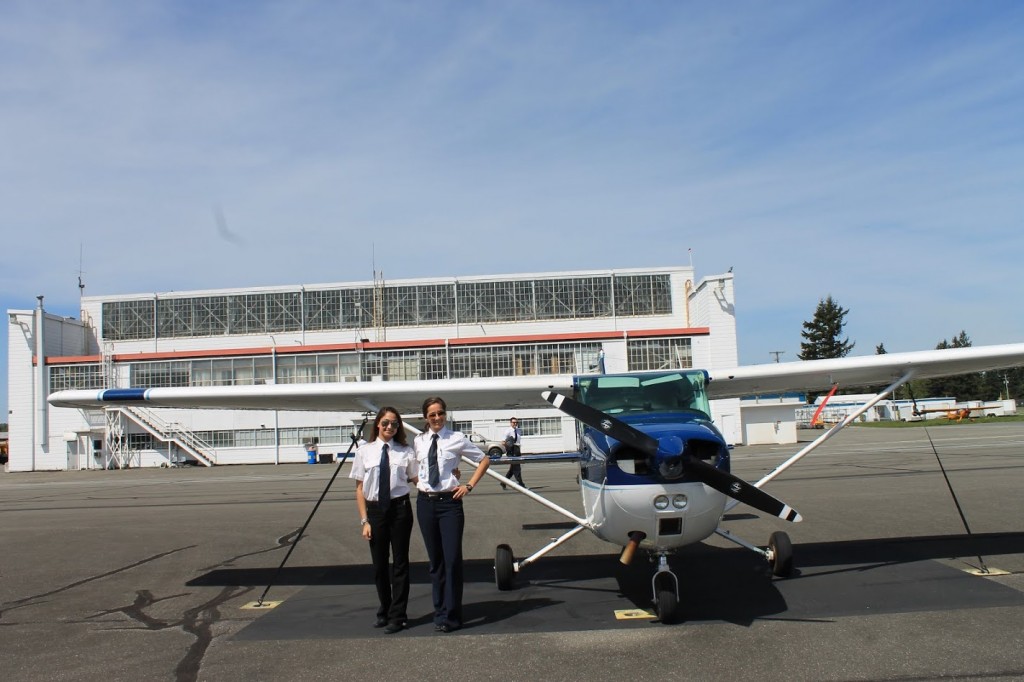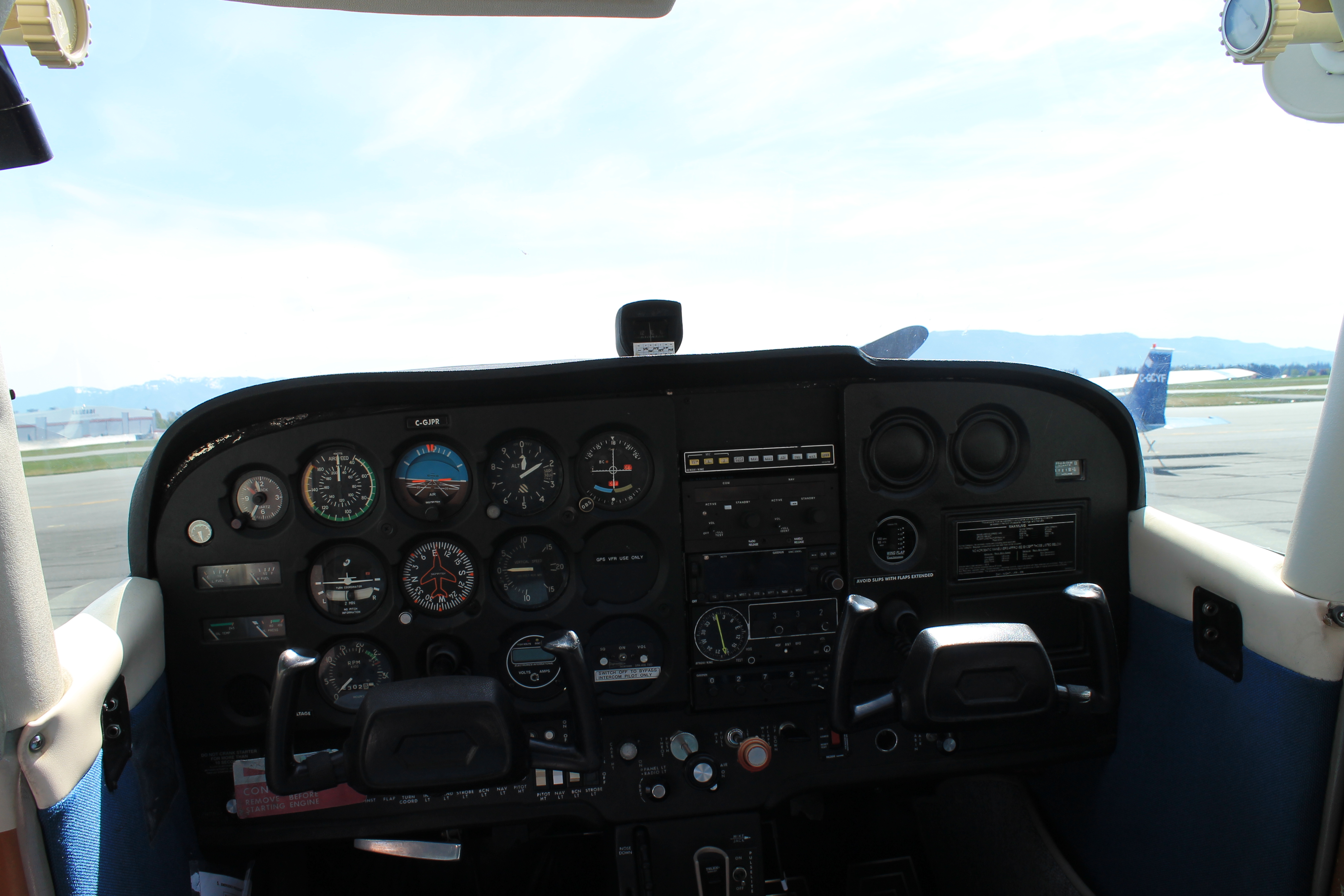By Katherine Gibson (The Cascade) – Email
Print Edition: May 7, 2014

For most of us, becoming a pilot means turning on Top Gun and living vicariously through Tom Cruise and his aviators. But for a select few UFV students, becoming a pilot is now more than a Hollywood dream — it’s a reality.
On May 2, graduates from UFV’s aviation program walked across the stage and got their very own set of “wings,” licensing them to fly privately and commercially. Completing either a two-year diploma program or a four-year business degree alongside their aviation training, these graduates leave equipped to competitively integrate into the industry.
UFV has partnered with Coastal Pacific Aviation for almost 15 years, a fact that has led to a beneficial relationship between these two. Combining hands-on aviation training with formal business education, students are given the opportunity to gain a competitive edge when seeking out future employment.
“Modern pilots, they’re managers. They’re managers of the cockpit, they’re managers of the crew. There’s piloting of course, but their job is management,” explains Coastal Pacific Aviation program coordinator Jacenta Ramdial. “So, if they have a business degree … they understand the business side of it.
“Instead of being a pilot who can only fly a plane, [employers] can use them for all of these other positions too,” she says. “[Employers] want people with an education. It shows commitment, dedication, and work [ethic] — it says a lot to an employer.”
Students are given extensive hands-on experience, trained in various simulators as well as logging many flight hours. Students also maintain a strict dress code, wearing uniforms that mimic the professional atmosphere of the workforce.
“This is probably one of the most practical programs at [UFV],” Ramdial says. “It’s hands-on and it’s practical. Everything that you learn here you’re going to directly apply to your work in the future.
“When [students] go to their first job — they’ve seen [everything], they’ve flown,” she says. “It should make their whole transition into the work place a lot easier.”
The employability of these graduates is also enhanced by the industry’s need for new pilots. As Ramdial explains, the aviation industry is facing a pilot shortage with many of its seasoned veterans set to retire in the next 10 years. So far, every student graduating from the program has been placed in a job position, keeping the program’s 100 per cent placement rate from the year before.
Most graduates from this program are male, reflecting the lack of female presence in the industry as a whole. Ramdial notes that only six per cent of pilots in Canada are female, a fact she equates to women simply not realizing that becoming a pilot is a viable option for them.
“It’s always been a man’s industry. And even myself, when I decided that I wanted to become a pilot, people kind of went, ‘oh,’” Ramdial notes. “I had never thought about it. I always wanted to be a flight attendant because that’s what girls flocked towards. Girls flock towards [becoming] flight attendants because no one tells them that they can be a pilot too … it’s an assumption.”
Current graduate Marissa Wolfe is challenging that trend. For her, becoming a pilot means getting to live her dream and open the door to new opportunities.
“The possibilities are endless [and] we can really go anywhere in the world — we’re not capped in,” Wolfe says. “I read this quote online the other day — it was a picture of a pilot in a cockpit … looking out the window saying, ‘can’t complain looking at this view from 30,000 feet.’ It’s exciting to have that opportunity — we are quite fortunate to get to do this.”
While Wolfe does acknowledge the intensive nature of learning to fly on top of her regular university coursework, she has kept her excitement as she looks back on the experience and her choice to become a pilot.
“I grew up with aviation in my family, but the big thing was, I thought, what better than to be paid to do something that I love every day, get to travel the world, and have opportunities,” Wolfe concludes. “There’s no cap to what we can do from here.”


